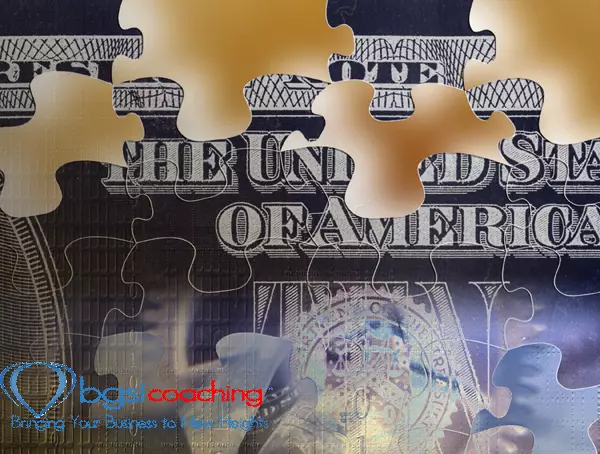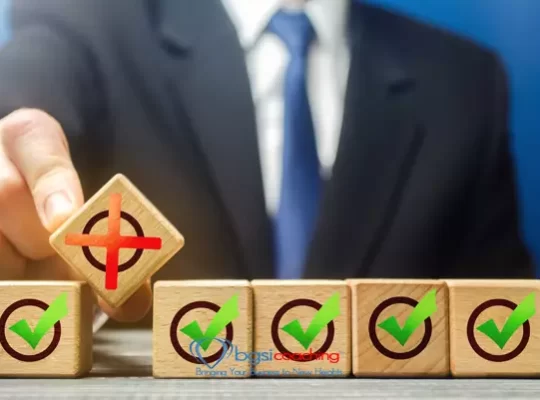Welcome back to another episode of MOJO: The Meaning of Life and Business.
Today we have a fascinating guest joining us, Michael Zwick, an inheritance investigator. We’re diving deep into the world of unclaimed assets, as Michael shares his expertise and insights on a topic that affects millions of people worldwide.
Ever wondered what happens to your money if you give up on finding a solution? Or how credible it is to be informed that you’ve found your long-lost inheritance?
In this episode, we unravel the mysteries surrounding unclaimed assets, and how individuals like Michael help reunite people with what is rightfully theirs. From forgotten bank accounts to hidden securities, we explore the complex process of locating and claiming these unclaimed funds.
Stay tuned as we uncover the hidden treasures and take a closer look at the world of an inheritance investigator. You won’t want to miss this intriguing episode of MOJO.

Life & business intersect in many places. After all, we cannot have a business without looking at the human component of business.
This podcast with Jennifer R Glass, CEO of Business Growth Strategies International & BGSICoaching.com is all about the meaning of life and business & the interesting ways they intersect. The show is for entrepreneurs and aspiring entrepreneurs on the search for what makes people successful and how to get there themselves.
Listen in as Jennifer & her guests dive deep into what makes people tick & how they make their businesses work for the betterment of others.
Welcome back to another episode of MOJO: The Meaning of Life and Business.
Today we have a fascinating guest joining us, Michael Zwick, an inheritance investigator. We're diving deep into the world of unclaimed assets, as Michael shares his expertise and insights on a topic that affects millions of people worldwide.
Ever wondered what happens to your money if you give up on finding a solution? Or how credible it is to be informed that you've found your long-lost inheritance?
In this episode, we unravel the mysteries surrounding unclaimed assets, and how individuals like Michael help reunite people with what is rightfully theirs. From forgotten bank accounts to hidden securities, we explore the complex process of locating and claiming these unclaimed funds.
Stay tuned as we uncover the hidden treasures and take a closer look at the world of an inheritance investigator. You won't want to miss this intriguing episode of MOJO.
About my guest:
Michael Zwick started his professional life as an attorney before becoming a licensed private investigator. He is not, however, your typical PI. Instead of trailing cheating husbands at 2:00 am. Michael looks for missing heirs and inheritance assets. In his spare time, Michael enjoys spending time with his wife and three kids.
Connect with Michael on Facebook, LinkedIn, and on the web at
https://assets-international.com/
Keywords: unclaimed funds, solving problems, missing assets, asset locator, private investigator, unclaimed property, estate planning, estate attorney, heirs, probate, documentation, unclaimed money, forgotten money, dormant funds, unclaimed checks, unclaimed securities, unclaimed savings bonds, unclaimed bank accounts, unclaimed insurance policies, unclaimed stocks, unclaimed inheritances, estate executor, lost information, asset recovery, personal records, hoarders, tax returns, state office, Warren Buffett, Tom Osborne, automated systems
Key topics:
I. Introduction
A. Importance of finding and understanding our assets
B. Guest introduction: Michael Zwick
II. The Challenges of Executors
A. Executors' responsibilities and struggles
B. Difficulty in locating assets
C. Unclaimed funds that states can keep
III. The Scope of Unclaimed Assets
A. Estimated $75 billion in unclaimed assets among 50 states
B. Government treasuries holding billions of dollars
C. Lack of active efforts to reunite people with their assets
IV. Finding and Claiming Unclaimed Property
A. Searching state websites for unclaimed property
B. Importance of searching each state where one has lived
C. Michael's business in finding and recovering unclaimed property
V. Michael's Approach and Limitations
A. Prioritizing finding the money versus locating the owners
B. Working on a contingency basis
C. Being selective in cases to focus on profitable recoveries
VI. The Future and Impact of Michael's Work
A. Growing business and partnerships
B. Desire to work with more estate attorneys
VII. Personal Motivations and Satisfaction
A. Jennifer's daily motivation and pleasure in running an enterprise
B. The fulfillment of being the ”good guys” with big checks
C. Hearing stories of how the recovered funds have been used
VIII. The Importance of Asset Awareness and Estate Planning
A. Paying attention to assets during estate planning
B. Creating a comprehensive written plan with important information
C. Having someone who can access your information in an emergency
IX. The Role of Michael Zweck in Recovering Lost Assets
A. Recovering lost information and assets for individuals
B. The importance of having someone to access your information
C. Hiring a professional depending on the case
X. Examples of Successful Asset Recovery
A. Case example of $1,000,000 inheritance recovered for a cousin
B. The process and documentation needed to confirm identity
C. Appreciation for hoarders and their potential for having necessary records

About my guest: Michael Zwick started his professional life as an attorney before becoming a licensed private investigator. He is not, however, your typical PI. Instead of trailing cheating husbands at 2:00 am. Michael looks for missing heirs and inheritance assets. In his spare time, Michael enjoys spending time with his wife and three kids.
Connect with Michael on Facebook, LinkedIn, and on the web at https://assets-international.com/
Keywords: unclaimed funds, solving problems, missing assets, asset locator, private investigator, unclaimed property, estate planning, estate attorney, heirs, probate, documentation, unclaimed money, forgotten money, dormant funds, unclaimed checks, unclaimed securities, unclaimed savings bonds, unclaimed bank accounts, unclaimed insurance policies, unclaimed stocks, unclaimed inheritances, estate executor, lost information, asset recovery, personal records, hoarders, tax returns, state office, Warren Buffett, Tom Osborne, automated systems
Key topics:
I. Introduction
A. Importance of finding and understanding our assets
B. Guest introduction: Michael Zwick
II. The Challenges of Executors
A. Executors’ responsibilities and struggles
B. Difficulty in locating assets
C. Unclaimed funds that states can keep
III. The Scope of Unclaimed Assets
A. Estimated $75 billion in unclaimed assets among 50 states
B. Government treasuries holding billions of dollars
C. Lack of active efforts to reunite people with their assets
IV. Finding and Claiming Unclaimed Property
A. Searching state websites for unclaimed property
B. Importance of searching each state where one has lived
C. Michael’s business in finding and recovering unclaimed property
V. Michael’s Approach and Limitations
A. Prioritizing finding the money versus locating the owners
B. Working on a contingency basis
C. Being selective in cases to focus on profitable recoveries
VI. The Future and Impact of Michael’s Work
A. Growing business and partnerships
B. Desire to work with more estate attorneys
VII. Personal Motivations and Satisfaction
A. Jennifer’s daily motivation and pleasure in running an enterprise
B. The fulfillment of being the “good guys” with big checks
C. Hearing stories of how the recovered funds have been used
VIII. The Importance of Asset Awareness and Estate Planning
A. Paying attention to assets during estate planning
B. Creating a comprehensive written plan with important information
C. Having someone who can access your information in an emergency
IX. The Role of Michael Zweck in Recovering Lost Assets
A. Recovering lost information and assets for individuals
B. The importance of having someone to access your information
C. Hiring a professional depending on the case
X. Examples of Successful Asset Recovery
A. Case example of $1,000,000 inheritance recovered for a cousin
B. The process and documentation needed to confirm identity
C. Appreciation for hoarders and their potential for having necessary records
Transcript (auto-generated; may contain errors):
Jennifer Glass:
Hello, and welcome to another episode of Mojo, the meaning of life and business. On our show today, we’re going to be talking about our assets. What does that mean, our assets? And what does it mean when we don’t know where our assets are? Sometimes we get into a situation where We may forget that we have assets in a particular bank, in a particular security, in a particular place, Or it could be our relatives had assets that we are otherwise entitled to, but we weren’t able to find out about those assets through a number of different issues. There’s people out there that actually try and reunite us with our missing assets. And I have a really incredible guest on the show today who’s gonna help us understand a little bit more about what it means and what the process is like, what we need to be paying attention to, and what we don’t even know We don’t know yet. But before I bring him on, let me tell you a little bit about my guest. Michael Zweck started his professional life as an attorney before becoming a licensed private investigator. He is not, however, your typical PI.
Jennifer Glass:
Instead of trailing cheating husbands at 2 AM, Michael looks for missing heirs and inheritance assets. In his spare time, Michael enjoys spending time with his wife and 3 kids. Michael, welcome to the show.
Michael Zwick:
Great to be here, Jennifer.
Jennifer Glass:
Absolutely. Thank you. So let me ask you, I mentioned the missing assets. Tell me more. What exactly does that even mean?
Michael Zwick:
So Some people don’t like to talk about their their assets or really deal with their death, Which is something that we all have to deal with at some point. So, unfortunately, many people are so uncomfortable talking about death whether it’s their health, their finances, or whatever that they take their information about what they own to the grave. And it it’s a big issue. You know, normally, people who are executive who have to be the executors, who have to handle the estates Of person after someone. That is usually going to be someone who is a child of the deceased. And based on demographics, those person the people who are the executors tend to be people who are in their thirties to fifties, meaning they are dealing with their children, business or job, as well as the grief of being of having lost a loved one. Now pile on top of that, the role of being an executor, And, it’s being executive has nothing to prepare someone who is not in the field of you know, in that field of law of doing that. So these people who are executors often are struggling with finding out where assets are.
Michael Zwick:
Some people might have a really good will an estate plan, but they fail to write down what are the assets that they actually own, so people are just struggling with What’s out there? What what did their deceased leave behind? And the best we help with are those assets of finding them and also dealing with all the bureaucracy that comes with it to get those s’s turned over to the
Jennifer Glass:
ears. Thank you. So let me now take a hard turn And go back because we said you started your professional life as an attorney, and then you ended up as a PI. I mean, talk about a crazy shift in, strategy and career. I mean, how did that even happen?
Michael Zwick:
Great question. I so I was practicing law. I was a 1 man firm. I was doing okay. I mean, I was I was Practicing mostly criminal defense, some civil litigation, some bankruptcy, and I was doing okay in terms of both My case is as well as, earning a living. I was single at the time, so my obligations were pretty minimal. And, but I was doing okay. That was just a 1 man operation.
Michael Zwick:
And then of a old friend of mine who had moved to Israel a few years before reached out to me That he had stumbled upon this thing called unclaimed property, and I guess now I’m gonna make the left turn right here kinda explain what unclaimed property is. And this kinda goes into the missing assets thing. There’s a whole category of that. Every state has a law that says that if you have have an asset that’s in the hands of somebody else, like a bank account. You own a bank account, but it’s held by the bank or even insurance policy or stock or whatever, and you don’t, Do anything with that asset. You don’t check your account balance. You don’t make any withdrawals. You don’t make any investments, whatever.
Michael Zwick:
After a short period of time, The holder of that asset, the bank, the insurance company, this the the the stock company has to churn over your assets to the state to hold for you. There’s big money there. Right now, in 2023, I I think the estimate is about 75,000,000,000, with a b, Dollars sitting among the 50 states of what they have. And that doesn’t get into and other money sitting government treasuries, whether it’s uncashed checks Issued by government agencies, money left over after foreclosures where the amount bid on the property is more than was owed so that Excess money goes to sits with the county, on cash, or unclaimed securities or, I should say, savings bonds. Sorry. They’re in the federal treasury. So there are 100 of 1,000,000,000 of dollars just sitting out there in government treasuries waiting to be claimed. So this friend and I started a little business as a side thing to my law practice to his, he had a videography business, of, finding these people who have money sitting out there And uniting them with what they own.
Michael Zwick:
And that’s basically what we started, and then it kind of grew over time. Within a year or 2, we realized we were onto something. We each, closed our side business. We actually had a third partner. We all Closed our side our our main jobs, I should say, and went all in on this business. And then within a year or 2 of that, we start hiring employees.
Jennifer Glass:
So Thank you. So how long does it need to be? Because you mentioned that eventually then it goes to the state? Because you said if you don’t do anything for a certain amount of time. I mean, just so we don’t freak people out, like, it’s gonna go in 6 months if you’re not looking at your account, that it’s gonna go to the state. What do we need to know about that?
Michael Zwick:
So the law, varies both from state to state as well as the, what kind of asset it is. So typically, though, an uncashed check will be only a year. So for example, if you leave your employer And sends your last paycheck, and that check goes on cash for more than a year, then the employer is supposed to turn over to the state. With other assets such as bank accounts, docs, stuff like that, it’s usually more 3 to 5 years Yes. The amount of time. And you and by law, the holder of the asset is supposed to try to contact you and let you know That if you don’t, do something within x amount of time, usually 3 months, That they will turn over to the States. See, there there should be ample warning if they could find you.
Jennifer Glass:
So does it matter if it’s the person or their heirs when they’re trying to be found?
Michael Zwick:
So I’m not sure. I I actually I’m
Jennifer Glass:
not sure. Words, one of the things, as an example, in New York when there’s cases going after estates. As an example, in New York, there’s a law that you have to put information in a publication that you are seeking the heirs of an estate, that there’s unclaimed or unpaid bills that the estate owes. And so they’re putting in a public notice that They are seeking the heirs of the estate to address those issues. When they are looking for the person who may have these funds. And maybe there’s a death certificate on file with the state but they don’t know who the heirs are. Does the state have to do a public notice similarly and say we’re looking for the heir, or does it just sit back and say we’re not gonna do anything?
Michael Zwick:
Okay. So let’s start with the companies that are holding on to the assets. They, they’re typically not going to dig that deep Into who the heirs are. The reason that at at some point, what’s their obligation to, report this money and turn it over to the state comms? They just wanna get off their books. They they just wanna get it out there. So they’ll go through, fulfill whatever obligate minimal obligations they have To do to so years ago, I remember I I went to a UnClay Property Conference, and the treasurer for the state of Nebraska was there. This was probably Almost 20 years ago. And he said he was setting examples of companies that are are rather lazy in terms of of defining the the owners give them money.
Michael Zwick:
And he said one time, they got money turned over to them for Warren Buffett and Tom Osborne. Now for those who don’t remember, Tom Osborne was the head coach of the Nebraska University Nebraska football team from the sixties through the nineties. He was as close to a god in the state of Nebraska as there was. I and and, obviously, everyone knows who Warren Buffett is. And this the the individual from the Nebraska state office said, If you can’t find these people, you’re clearly just not trying. Now granted a lot of these companies are using you know, they’re they have 1,000 and thousands of accounts, So they’re not individually looking at each one. They’re just kind of putting it into whatever system and sending out automated letters, whatever. Here’s what the state does.
Michael Zwick:
Here’s the dirty little secret. As I told you before, the states are sending about $70,000,000,000. They’re not in that much of a rush to pay it out because the state gets to use that money interest free, for the state operating budget. Now some, some states, you know, the claim rate of what gets actually claimed is usually somewhere between 30 and Percent, which means 50 to 70% of the money will never get claimed. The state can keep using it without having to pay it back. And the other amount the other 30 to 50%, we’ll get paid eventually, but but until it gets claimed, they can use that money. So states are, For the most part, not really looking all that hard to find people. They like to tell, for example, how much money they pay out.
Michael Zwick:
They very rarely tell you how much they Paying. So, for example, a state might say, we paid out $75,000,000 on claimed property. What they don’t tell you is they brought in $150,000,000 last year and multiply that over how many years they’ve been doing this, and that’s where all the money is.
Jennifer Glass:
And that’s a crazy amount of money if you think about what they’re doing. So how would somebody go about If I think maybe I may have money that may be out there, what would I need to even start doing? Like, if I know you You know, I had a bank account many years ago. Did I ever get rid of did I ever withdraw it before the bank went out of business and merge with someone else or Whatever the story may be, what would someone need to even start thinking about?
Michael Zwick:
So the first step is I would go to each state. Every state where you lived, they’re uncle you just Google the state name and then unclean property, and every state has a website where you can search. Reese, that’s in every state where you live is because this the the company is supposed to return over to the states where the the their last address of record that they have for you. So for example, I’ve lived I went to college in New York. I lived in Michigan my entire life until 3 years ago and moved to Florida. So If, Michigan, I would if if it was me, New York, I wouldn’t be so concerned about because I was you know, lived there for a few years when I was in college law school. But, you know, Michigan, I would look. And now I would start looking at, you know, I would start looking at Florida.
Michael Zwick:
No. That’s not I should not to scare anybody, but there are times where money gets turned over to the wrong state by accident. We’ve had we’ve seen cases where money gets turned over. For example, that should have gone to Mississippi, went to Michigan because They’re putting it the people are doing this, putting into whatever computer system before they turn over the twos the 2 letter state code. No. Mississippi and Michigan both start with MI, but only one of them has that as their, as as the official Two letter, I don’t know, acronym. So someone might put in for Mississippi might put MI when really I should put MS, so it gets turned over to Michigan. I’m getting a little technical here.
Michael Zwick:
But, so it is possible that money can get turned over to the wrong state. I said, some companies are lazy, and rather than a company might have unclaimed property owners in 10 different states, they might just say, you know, we’re just gonna give it all over to our home state, and we’re we’re not gonna bother just running over to the other states that that’s where the people actually lived.
Jennifer Glass:
So if we have a situation where you are going to be trying to track down, the funds. Is it easy to do? Like you said, go to the state and just look. I mean, is it an easy process? What would you need to even start doing?
Michael Zwick:
So so I just should actually clarify. My company, what we do is we first find them most of the time, first find the money, then go find the owners. Because we work on a contingency basis, we only get paid a percentage of what we recover, so and a lot of unclaimed property is in relatively small increments, Not enough for us to work profitably. We’d love to help everybody, but if we did, we would go out of business very quickly, because we, you know, we’re not gonna we’re gonna lose money by helping someone claim $100. So, you know, When if someone was claiming it on their own, and if, obviously, they run-in trouble, they can call us. But excuse me. You know, they should contact and file you know, initiate a claim. Most states allow you to do so, on their website to initiate the claim, states will tell you, generally speaking, okay, here’s what we need from you in terms of documentation or information.
Michael Zwick:
Some States are stricter in terms of what they’ll tell you, so sometimes like New York, for example, will not tell you the amount of money it is Until you they’re satisfied that you are the right person. So for me, I lived, like I said, in in college and law school, I lived between the 3 of Between those years, 3 different dormitory rooms and then, 3 different apartments. So if it was for, say, my first one of my apartments, 730, Columbus Avenue, Apartment 12 See, I’m not worried about giving out of the way of information this time. It’s been years. The the state of New York would say, okay. We need document. We need actual documentation that you live at that address, not just my citing that address, but actually give them documentation. No problem, of course, could be I don’t have that documentation.
Michael Zwick:
You know, it was 30 years ago. I was at law school. I felt like I had a deed to the place, Whether I can find that information. Now I, in my work, have some tools that I might be able to find, some databases that will show that I live there. Most individuals cannot, and it becomes a problem, and then they just give up, which is the state is not too worried about if you It’s kinda happy for the people to give up. Excuse me. So I hope that answers your question.
Jennifer Glass:
Thank you. So in the event that you do have a a solution or a problem like that, and you end up giving up. Some point down the line, the state is ultimately gonna end up keeping those funds, like you said, part of the 75,000,000,000 that they’re holding on to and using it Interest free, you know, as long as it’s gonna take to do that. But let me Go back though and just ask, when you do find someone and you reach out to them and you say, Mister Smith, I wanna let you know we found money that may be yours, and we need to confirm it is in fact yours. How many people believe you that you are actually reaching out, to tell them that this is real as opposed to the old Nigerian prince scheme, that I have money for you. And if you send me your identification, I’ll give you, you know, the money.
Michael Zwick:
So, great question. We, often say within our company that our biggest competition is not other company. It’s skepticism. It’s convincing someone that we are legitimate. So we have, worked hard at getting Having a presentation to people when we send them a letter or send them an email that we are legitimate. Obviously, we’re not dilute usual enough to think that we are a name you know, a brand that everybody knows like Coca Cola or CNN. We know that, but we think we present a very credible brand. So someone goes on our website or they look at the materials We send them.
Michael Zwick:
They’ll see we we are a licensed private investigation agency. I’m one of 33 licensed attorneys on staff. We have a a plus rating with Better Business Bureau. We’ll usually send a glossy reprint of a Washington Post article in which we were mentioned where we found The missing errors of someone who had passed away and left behind a a decent size of state. So that often will help, bridge the gap. Also, depending on the amounts of money involved, meeting with someone in person. Like I said, I live in Florida. I don’t mind flying anywhere as long as it is, economically practical.
Michael Zwick:
So like I said, I’m not going to fly across the country To meet with someone on a you know, for, say, $1,000. But if it’s big enough, it’s worth it for me. And usually, once I meet with someone in person, I think they’re able to see I’m a real person. I’m a trustworthy guy. They can trust us, and that goes a long way.
Jennifer Glass:
Absolutely. And like you said, skepticism is gonna be one of those things that’s gonna be the biggest killer before you even start talking with someone. So I’m glad that you’ve got that worked out. How you can show people now you’re really who you say you are and things along those lines. So let me ask you, when people go down that path with you and they say, alright, Michael, I trust you. How do you work with them? I mean, is it just they sign a piece of paper, they give you some basic information, and then you go to work? Do they have to give you more information and then, you know, they gotta really trust that everything is gonna happen? How does all of that pan out?
Michael Zwick:
So the answer is it depends. It really depends on what kind of case it is. So like I said, you know, we work a lot also with, probate estates where someone has died and Someone is owed inheritance, but nobody can find that person. Those tend to be some easier like, I’ll give you an example. We had a case out of Detroit where a woman died, Left a quarter $1,000,000 inheritance to a cousin. The attorney calls us and says, last we know, this cousin was living in San Francisco, and we tracked her down in Montana. So she saw was all we really needed in that case was really just her, I think a copy of her license, driver license, and I think we need maybe her birth certificate to show that she was the 1 person with that name who was the Child of, you know, the the sister of the deceased, to kinda, you know, document that we have the right person. And, Yeah.
Michael Zwick:
A week later, she had her check for quarter $1,000,000. In other cases, though, it could take a while because it could be like, oh, we have to give documentation That did you see the person might not know, might have handy. We went to order the birth certificate, from the states to show who they are Or, might need to dig into other records to connect them to the address that’s on that the state might have on file to show that they lived at a particular address. So sometimes yeah. I’ll tell you. I I happen to love, to some extent, hoarders because sometimes they will have Those records in their house. My parents are have a very have have very different views among them, Well, the 2 of them, and I see if I can keep records. My father, being a CPA, believes, you know, hold on to tax returns forever.
Michael Zwick:
You never know when you might need them. I love that as a client. On the other hand, I’m sympathetic to my mother who’s very much not wanting to keep all his papers around the house and would like to get rid of them all. And, and so, and I can understand both sides of of wanting Tidiness versus having having records that you might need later on. So, I love clients that keep a lot of records. Hopefully, if they do, they’re boxed Stop and organize in a very easy to find way. Yeah. We want once a client who we had found a bank account, And, and and it was, like, $15,000.
Michael Zwick:
And when we told them where the money was from, in which bank it originated from, they said, oh, we have all bank statements from there, and they’re able to it’s because, normally, we’d have to get documentation from the bank connecting the owner To the bank account. But in that case, they actually had a a statement sitting right there in their attic, and they gave it to us. And that expedited the process Big time. Because we’d have to deal with with with bothering the bank to get those documents.
Jennifer Glass:
Thank you. And that’s really incredible, and I love how you say Hold on to the tax returns for forever and not you know, just get rid of it.
Michael Zwick:
Well, let me let me clarify in case my mother’s listening to this. I’m not advocating to hold out to that. I’m just saying I understand those who say you do.
Jennifer Glass:
Yes. And you can also digitize It just said it makes it a lot easier. You get the paper
Michael Zwick:
out of the way. Digitizing is makes things a whole lot easier these days.
Jennifer Glass:
Yes. So let me ask you, Michael. How successful has your firm been in reuniting the heirs and people that Completely forgot about bank accounts with their money.
Michael Zwick:
Well, last I checked, we had, United Owners with about $175,000,000
Jennifer Glass:
Wow.
Michael Zwick:
Started. And with, I’d say if you, definitely more per year every year. You know, usually, it’s it’s on average these days about, You know, 10 to $12,000,000 a year, we will unite with people, whether it’s, like, some unclean property. It could be money sitting in other government treasuries. It could be missing here as a probate case like that One with a quarter $1,000,000 inheritance. So it’s coming from various sources, but probably around, 10, $12,000,000 a year.
Jennifer Glass:
That’s incredible, and thank you for reuniting them with their money.
Michael Zwick:
My pleasure. Love it.
Jennifer Glass:
Yes. So Taking another turn, what makes you get out of bed every morning? I mean, is it just reuniting people with their money, or is there a bigger drive there that makes you get out of bed?
Michael Zwick:
Well, the the immediate answer is usually I have to go to the bathroom. But, the reality, what Makes me get up the what drives me is, first of all, I love what I do. I I just as an entrepreneur, just the overall Building and running an enterprise, is always a deal to me. So that in and of itself, I I think On some level, no matter what I was building, as long as as long as they’re building and growing and coming up with new ideas, I think I’d be into it. But I love what I do because, well, some people, when they get a call from us, think we’re a collection agency, which is understandable, and then it comes to assets international. The good guys. We’re the ones who, like Ed McManus do, kind of show up with a big check for people. Now granted, we don’t do it much in person, but, You know, getting the those letters and hearing stories from clients as to how they’re able to use the money.
Michael Zwick:
We’ve had people who clients who are homeless That we’ve found we’re able to take that money and change their life situation. One of my favorite clients ever was Right about 10 years ago. It was actually it was 2012. He was a massage therapist in in Denmark, or Amsterdam. Sorry. And he he well, I asked him you know, we had a garage show, I asked him what you do with and he told me 2 things. 1 is as a massage therapist, he used to run around town with his table and whatever else, to, To meet with clients. Because with money, he was actually able to get himself his own location, and people came to him, which obviously made him more profitable because he could see more people in the day.
Michael Zwick:
Other thing he did was he was he always loved the Olympics. He always wanted to go see the Olympics, and he was able to use that money to go to London that year and see the Olympics in person. And he was able to cross it off his bucket list. So hearing things like that, just makes my day.
Jennifer Glass:
Thank you. And so if you’re looking in the next 3 years, where do you see yourself?
Michael Zwick:
I like to think still with the company, but but growing more and more. You know, one of the things we we we do Research and Scrut is working more with, with companies that have unclaimed property that we need to turn over to turn to us to help them find the owners, getting our name out there to more, estate attorneys to help them find those missing heirs that are out there, And just helping as many people as we can. But as I I I I I always have a hard time answering that because I know from looking back over the past 22 years since starting the company is nothing it was very rare that something was kinda the same as it was 3 years before. So, I have things I’d like to do but realize that those might have come to fruition, but other opportunities that aren’t even on my radar might might come up.
Jennifer Glass:
Absolutely. Thank you. And the other question I have for you is, what do you define as success? And do you see yourself successful today?
Michael Zwick:
So I’d say success is, Being happy with what you have, which doesn’t necessarily mean you can’t want more, but being, happy with what you have, and I would say, Definitely success. I love what I do. I’m able to support my family with it. I love my family. So I have a roof over my head and food on the table. Still, I would say that’s a success in my book.
Jennifer Glass:
Thank you. And people have been listening to our conversation, and they’re interested in getting more information about you. How can they connect with
Michael Zwick:
you? They can my email is [email protected]. They can call our office at 248-557-4960, or I’m pretty easy to find on LinkedIn. I believe, off the top of my head, it’s linkedin.com/michaelswick. Because I’ve been out long enough, I was able to get that name before anybody else did. So and I’m very active on LinkedIn. I regularly check my messages. So any of those ways, you know, just feel free to reach out to us.
Jennifer Glass:
Thank you. And so as we wrap up our conversation, again, thank you so much, Michael, for being my guest today. And it’s sorry. No.
Michael Zwick:
Go ahead. I was gonna say that you’re welcome. Glad to be here, but I was I thought you were you were going somewhere. Go ahead.
Jennifer Glass:
Yes. Thank you. And so as I was saying it’s really important that we pay attention, first of all, to the assets that we do have. And one of the things that You can help yourself with and not to take anything away from Michael, but as you are working on your estate plan, try and actually keep in mind what is going to happen to the assets you do have. Michael’s company comes in. He reunites The heirs with those who are rightfully owed the funds. However, if the state never gets the funds, Not to take anything, like I said, away from Michael, but it would go directly to you through the probate system or through, you actually getting it directly from your bank, or the other source where you have the funds outstanding. So you want to be paying attention to what you do have.
Jennifer Glass:
Have it as part of your actual overall plan. This is what you’re doing. Have it written down so that people know This is where you go. It isn’t only the bank accounts. Also, keep in mind also the passwords that you use on your computer, the passwords you use for your bank account, if you have a password manager, what the master password is so that someone is going to be able to actually access that formation in the event that you are no longer able to be providing that information to them. Too much information these days goes missing we’re completely forgotten about simply because we don’t know what we don’t know. And Michael is here to pick up the pieces when we forget where we don’t know that we even had money coming to us. But there’s all sorts of reasons why it becomes important for us to be paying attention to our overall plan, and remembering at least 1 person does have access to my information in the event I’m no longer available.
Jennifer Glass:
So once again, Michael, thank you again for being my guest. And on that note, has been another episode of MOJO: The Meaning of Life and Business. And until next time, here’s to your success.







